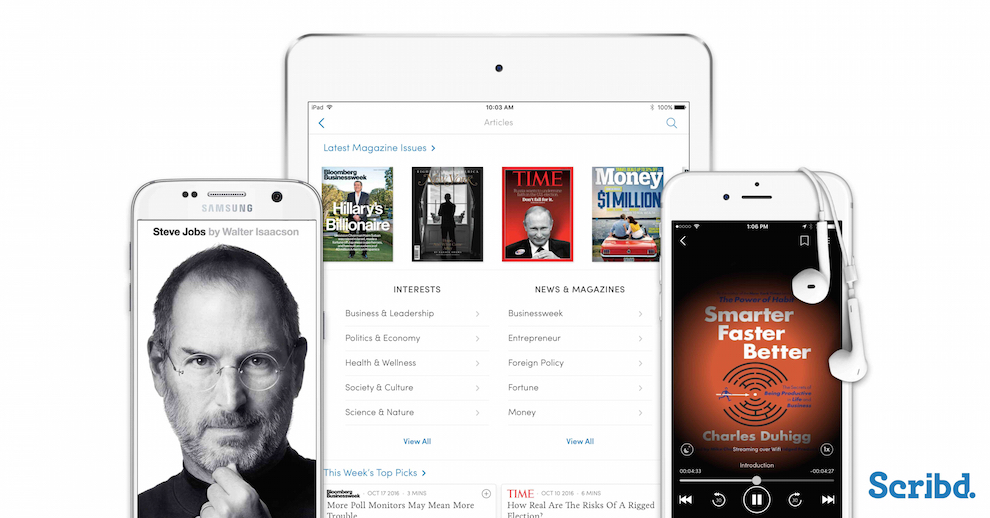
Scribd announced Tuesday that it’s adding magazines to its reading subscription service, which costs $8.99 a month and also includes ebooks, audiobooks, and other documents:
Subscribers can now enjoy access to articles from current and archive print editions of top brands such as Time, Money, Fortune, People, Bloomberg Businessweek, Entrepreneur, Foreign Policy and New York Magazine. Issues from Newsweek and The Atlantic will be added in the coming weeks.
“We’ve been able to make the whole book-subscription service work,” Scribd CEO Trip Adler told me. “We’ve been profitable for three months. Our vision is to have all these different types of written content in one place, organized around your interests.” The company has created 16,000 “interest pages,” on topics like the election, that will include book, audiobook, and article recommendations.
“You could be reading a magazine article and then we’ll recommend you a book,” Adler said. “At the same time, if you’re using Scribd to read books, there’s now a whole new use case.”Scribd has undergone a number of business model changes to get to this place of profitability (and it now has 100 employees, Adler said). It started out by offering unlimited access to ebooks, but “we found it was really difficult because there were power readers that were reading so many books, and because we were paying publishers by the read, it was impossible to be profitable from that,” Adler said. Earlier this year, the company switched to a model of three ebooks or comic books and 1 audiobook per month. While Scribd’s deals with book publishers vary, the largest publishers are paid by the read.
In the case of magazine publishers, there are two payment structures: Some are using a licensing structure and some are paid per article read, Adler said.
Amazon added digital magazines to its Prime membership last month; they’re presented as PDFs. Scribd, meanwhile, is just showing articles as text and images, and you won’t see ads as you would in a digital replica. “We are a reading service, so we’ve just kept this as a reading type of experience,” Adler said. “We’ve chosen an article-first method.”
Leave a comment